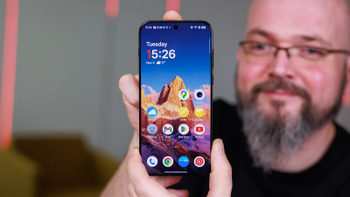GM phasing out Apple CarPlay and Android Auto in EVs, with Google's help

General Motors (GM) has announced that it will phase out support for Apple CarPlay and Android Auto in its electric vehicles (EVs) in the coming months. The decision is part of the automaker's plan to develop its own proprietary infotainment system for its EVs, all with Google's help.
While Apple CarPlay and Android Auto have become popular choices for in-car entertainment systems in recent years, GM is looking to offer a more seamless experience that is better integrated with its EVs. According to GM, its new system will be faster and more intuitive, offering better integration with the EV's battery and charging system.
This move by GM has surprised some industry experts who see it as a risky move, considering the popularity of Apple CarPlay and Android Auto. However, GM is not the only automaker to develop its own infotainment system. Tesla, for example, has had success with its own proprietary system, which is known for its speed and user-friendly interface.
The company argues that Android Automotive provides more control over the experience and there are plans to develop new driver assistance technologies that are more tightly integrated with navigation features. The endgame here is that ultimately GM does not want the use of a smartphone to be a requirement in order to use these new technologies, or your type of device (Android vs iOS) to dictate what your experience looks like.
GM has been working with Google since 2019 to develop the software foundations for infotainment systems that will be more tightly integrated with other vehicle systems such as GM's Super Cruise driver assistant. The automaker is accelerating a strategy for its EVs to be platforms for digital subscription services, so don't be surprised if you'll eventually end up paying a recurring fee for certain features like you already do with some brands.
GM has also said that it will continue to support CarPlay and Android Auto in its existing models, as well as in some upcoming models. However, the focus for new EVs will be on its own system, which will be tailored to the needs of its customers.
In addition to its new infotainment system, GM has also announced that it will be introducing a new suite of features for its EVs, including advanced driver assistance systems and more advanced battery technology. The automaker has said that it plans to invest $27 billion in the development of EVs and autonomous vehicles by 2025, as it looks to compete with the likes of Tesla and other EV manufacturers.
What replaces CarPlay and Android Auto on GM EVs
The company argues that Android Automotive provides more control over the experience and there are plans to develop new driver assistance technologies that are more tightly integrated with navigation features. The endgame here is that ultimately GM does not want the use of a smartphone to be a requirement in order to use these new technologies, or your type of device (Android vs iOS) to dictate what your experience looks like.
GM has also said that it will continue to support CarPlay and Android Auto in its existing models, as well as in some upcoming models. However, the focus for new EVs will be on its own system, which will be tailored to the needs of its customers.
New technologies are in development
In addition to its new infotainment system, GM has also announced that it will be introducing a new suite of features for its EVs, including advanced driver assistance systems and more advanced battery technology. The automaker has said that it plans to invest $27 billion in the development of EVs and autonomous vehicles by 2025, as it looks to compete with the likes of Tesla and other EV manufacturers.
GM's decision to phase out support for Apple CarPlay and Android Auto in its EVs is a bold move that reflects the automaker's commitment to developing its own technology solutions for its customers. However, some initial skepticism from consumers is to be expected, especially with the reality of having to pay for more subscription services on the horizon. It will be interesting to see how GM's new system performs and whether the experience will best that which is currently offered by the popular CarPlay and Android Auto.
Follow us on Google News









![A new Android bug is making it impossible to install new apps. Are you affected? [UPDATE]](https://m-cdn.phonearena.com/images/article/176703-wide-two_350/A-new-Android-bug-is-making-it-impossible-to-install-new-apps.-Are-you-affected-UPDATE.webp)


Things that are NOT allowed:
To help keep our community safe and free from spam, we apply temporary limits to newly created accounts: